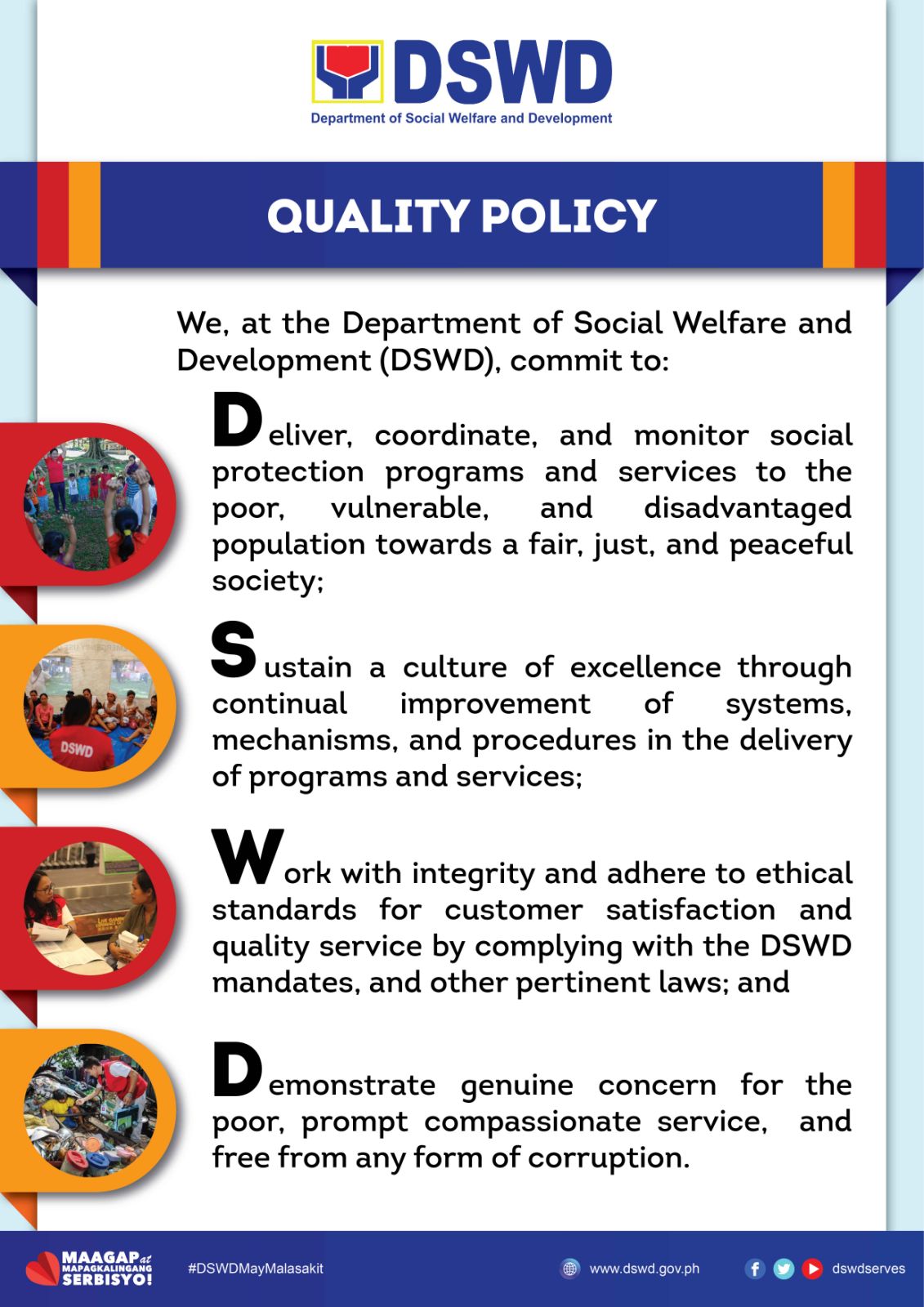Fast forward to a year later, in September 2020, the House Committee on Poverty Alleviation consolidated the four separate CDD bills. This substitute bill is now pending deliberation before the same committee.
The CDD Bill has three key features, namely: Institutionalization of the CDD approach; Operationalization of the CDD approach; and Creation of the CDD Knowledge Resource Center.
“The experience of initiating projects through KALAHI-CIDSS was long and tedious but its impact in empowering communities greatly outweighs the challenges.” This is how Rep. Jocelyn Sy-Limkaichong described her experience with the Community-Driven Development (CDD) process implemented by KALAHI-CIDSS.
Community-Driven Development espouses the principles of participation, transparency, and accountability by allowing community members to identify and prioritize their community’s problems. Further, CDD gives community members the opportunity to design, implement, and manage solutions to their identified problem areas. Through CDD, community members are empowered to take action and become more proactive in local community development.
CDD and KALAHI-CIDSS
For more than a decade now, KALAHI-CIDSS or the Kapit-Bisig Laban sa Kahirapan - Comprehensive and Integrated Delivery of Social Services has been championing the use of the Community-Driven Development approach as a means of implementing community-led projects among the poorest of the poor communities across the country.
Rep. Limkaichong, sharing her experience with KALAHI-CIDSS, noted that “this is a one of a kind opportunity where LGUs will give 10 percent of the funding and they will receive the rest of the 90 percent for the implementation of their chosen project. Not only were the communities given the discretion to choose which project they wanted to implement, but they also had first-hand experience in bottom-up budgeting. I witnessed how it empowered them to be involved in the process.”
With the institutionalization of CDD on all government programs, the principles and practices pioneered by KALAHI-CIDSS will be institutionalized and communities with historically high magnitudes of poverty, marginalization, and vulnerability will continue to reap the benefits of CDD.
Rep. Dalog Jr., who was the first to file CDD Bill in the 18th Congress, shared that “KALAHI-CIDSS has truly enabled poor communities in my province to develop the necessary skills and provided them with resources to select, implement and sustain small-scale community infrastructure sub-projects such as small roads, footbridges, water supplies, school buildings, health clinics, community enterprise activities and others. I didn’t realize the impact then, until I saw for myself how it helped, in large magnitude, our communities which are far from the capital town and very much in need of development.”
“The projects had a large impact in the communities especially because these societies are composed of 99% Indigenous Peoples. As IPs and stewards of the land and natural resources, there is now a sense of belongingness and ownership over the projects because of our contribution in the implementation and monitoring of said projects.” Rep. Dalog Jr. added.
He furthered his point by noting that “even the hidden, unfrequented, and remote areas have been improved and the people are happy to know that they can actually be involved and participate in projects like these.”
Institutionalizing and operationalizing the CDD Approach
The main objective of the CDD Bill is to institutionalize the CDD approach as the primary community development and poverty alleviation strategy of the government. Specifically, the bill wants all national government agencies and departments to adopt the CDD approach in their community-based programs and activities in order to promote participation and empowerment.
“The institutionalization of CDD will lead to the empowerment of local communities through their involvement in the design and implementation of poverty reduction projects. This is the essence of local governance where people are actively engaged and participating in their development needs. Since its inception, CDD has already improved the lives of the poor and the vulnerable.” Noted Rep. Lianda B. Bolila. “When I was asked to sponsor the CDD bill, I knew we had to scale up CDD as a national strategy.” She added.
Rep. Maximo Y. Dalog Jr. noted that institutionalizing CDD will allow communities to better address their needs, especially at the grassroots level. “I am driven to push for the institutionalization of CDD because I know that this will empower poor communities and allow them to be involved in local planning and decision-making, budgeting, project implementation, and monitoring of government projects and not be mere passive recipients. The success of the project will also be dependent on them and give them a sense of ownership.” Rep. Dalog Jr. added.
Numerous impact and evaluation studies on CDD and KALAHI-CIDSS show that when a community develops a sense of ownership over projects implemented in their respective areas, they are more likely to take care of the project’s outputs. This sense of ownership also translates to an appreciation of the CDD approach which in turn, leads to the adoption of CDD and its principles into their respective local development process.
Through its participatory nature, CDD is able to promote inclusivity. It does not limit participation to those who are on top but rather, it espouses a bottom-up approach where decisions come directly from the community. According to Rep. Bolilia, “CDD and KALAHI-CIDSS facilitated participation of residents in decision making and zeroes in on addressing local priority needs of beneficiaries.”
“CDD promotes inclusive growth.” Said Rep. Jocelyn Sy-Limkaichong. “The purpose of this approach is for the community itself to plan and implement their much-needed programs. It gives the people a sense of ownership and strengthens their partnership with both the local and the national government. More importantly, we need to institutionalize CDD because it is an effective way to bring power back to the hands of the people.” Rep. Limkaichong added.
Rep. Mangaoang, who was implementing CDD in the municipality of Balbalan, Kalinga even before it became a KALAHI-CIDSS beneficiary, noted CDD’s positive impacts to the community.
According to Rep. Mangaoang, “Insurgency has dwindled to its lowest as locals were dissuaded to be enticed to the recruitment as villages are now connected with local transport road networks and that they feel the Local Government is addressing their issues and concerns.”
He also added that “corruption was addressed with stringent measures and transparency is always primordial in every LGU spending. With this advocacy, we were able to reinstate the trust of our people to the government.”
He further explained that “with a CDD inspired development plan, our Municipality metamorphosed from a sleepy 5th class Municipality into a vibrant second class Municipality much touted as one of the fast growing Municipality.”
To breathe life into CDD’s institutionalization, all national government agencies and local government units are enjoined to develop policies for enhancing participatory governance practices and ensure that community members are able to meaningfully participate in the development process. Further, government agencies and LGUs must ensure that community members are prioritized in receiving employment opportunities brought about by project implementation within their respective communities.
Creating the CDD Knowledge Resource Center
To further improve CDD as a practice, the CDD Bill aims to establish the CDD Knowledge Research Center (CDD KRC) which will provide support for continued research and technology development, policy advocacy, resource mobilization, capacity-building, and monitoring and evaluation of projects and activities under the CDD framework.
In order to meet these objectives, the CDD KRI will develop a CDD Resource Pool which will be composed of experts on CDD principles and implementation. Together with the institute, they will co-develop certification and accreditation programs geared towards the growth and development of the CDD approach.
Civil Society Organizations (CSOs) will also play a key role in implementing and improving CDD. The CDD KRC will be working closely with accredited CSOs and academic institutions, especially in facilitating the community empowerment process and in providing continuous capacity building and technology transfer interventions to LGUs and communities.
Through the help of the CDD KRC, we are ensured that CDD will continue to improve and become more impactful in its pursuit of inclusive and sustainable national development.
Legislating for the future
“If this is passed into law, I am very certain that more communities, not only in my home province of Mountain Province but in the entire Philippines, will be able to address needs from the grass roots and more poor people will have a voice in the development process by establishing clear guidelines for participation, accountability and transparency.” said Rep. Dalog Jr.
Rep. Mangaoang shares the same commitment. He noted that “as representative of a Province where most of its Municipalities benefitted from a development concept mustered by the CDD program, I feel obligated to see the same program sustained. My sponsorship of the bill to institutionalize the CDD program is borne out from a testimony and personal experience that CDD models are effective ventures to catapult development in the countryside. The voice of our people in the countryside shall always be amplified with the approval of this bill.”
The Community-Driven Development bill cuts across multiple development issues in the country. Aside from institutionalizing a proven poverty alleviation process, it also tackles issues on local community participation and inclusivity. More importantly, the transparency and accountability that CDD provides in the implementation of government projects brings back communities’ trust in the government.





